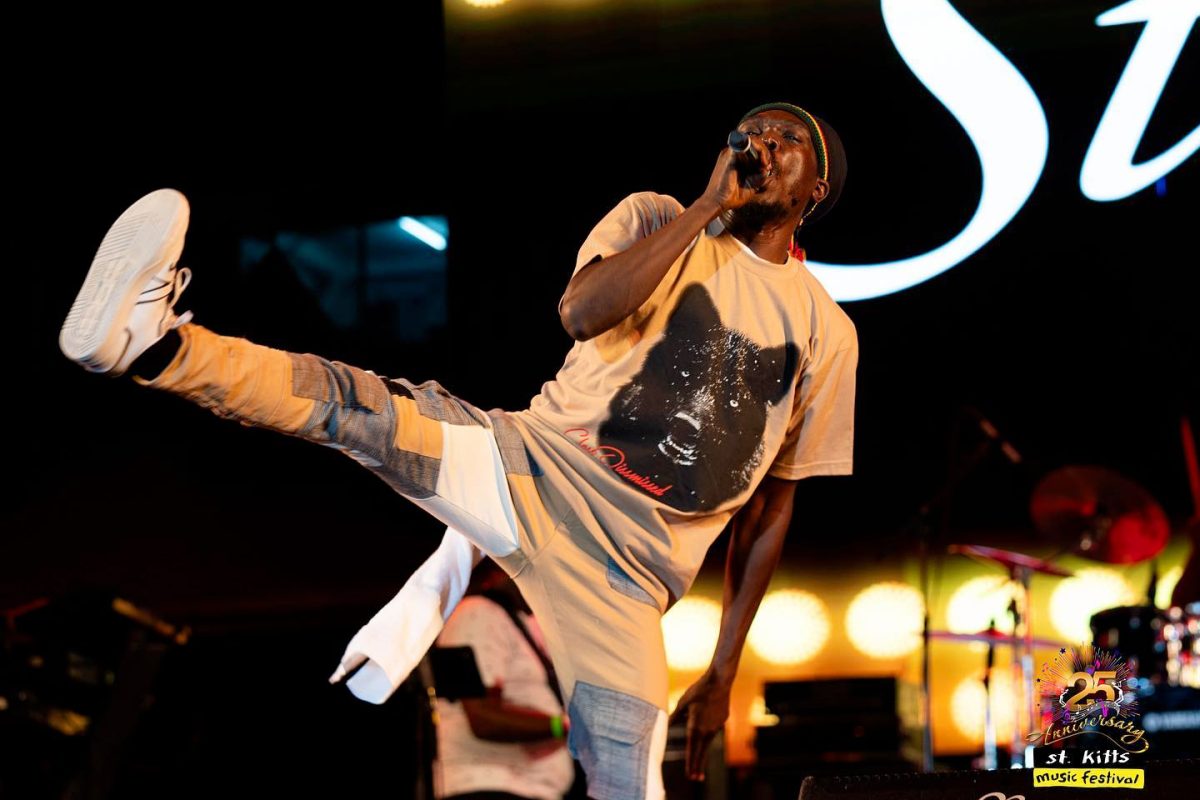Anthony B Says Jamaica’s Leaders Have Failed To Leverage Reggae For Tourism, Unlike St. Kitts

Fire Pon Rome singer Anthony B has lamented what he says is the failure of the leaders of Jamaica to utilize Reggae music as a catalyst for tourism growth.
According to the Trelawny native, this is in stark contrast to its Caribbean neighbor St. Kitts & Nevis, whose Tourism Ministry co-pioneered and finances the St. Kitts Music Festival, which uses Reggae and Dancehall music and artists as major pull factors.
“Reggae music is the biggest vehicle to push Jamaica’s tourism, but the authorities refuse to acknowledge that,” Anthony B pointed out in a recent Gleaner interview, as he began comparing and contrasting the two Caribbean countries.
“I went to St. Kitts for their music festival … remember yuh nuh that St Kitts don’t even have music for themselves, but they use our music and create one of the biggest and most recognised music festival in the world,” the artist added in expressing disappointment.
This year’s lineup on the penultimate and the ultimate nights of the recently-held St. Kitts Music Festival, was dominated by Jamaican artists, which included Anthony B himself on Friday night (June 23), alongside Govana, Skillibeng, Chronixx, Koffee, and St. Kitts own Jamaican-born artist Byron Messia, followed by Romain Virgo, Valiant, Teejay and Gramps Morgan on the third and final night (June 24).
According to the St Kitts Music Festival organizers, the first staging of the event back in 1996 was funded by a government overdraft facility of EC$ 450,000 (US$166,500). It was conceptualised due mainly to economic factors, including very low occupancy levels in local hotels and a reduction in overall business activity on the island.
Even though that year, the festival suffered a loss of approximately EC$ 35,000 (US$12,950), the Government of St. Kitts, across administrations, continued to give its unwavering support, according to the event organisers.
The country’s Ministers of Tourism over the decades have also been praised by Faron Lawrence, who served as festival chairman for more than ten years.
Lawrence is quoted as saying that “one essential ingredient that has kept the festival alive for the past two decades, is the commitment provided by all serving ministers with responsibility for the festival: Dwyer Astaphan, Jacinth Henry-Martin as well as Richard Skerritt and now Lindsay Grant”, both of whom served as volunteers in the early years of the event.
In detail, the festival was “designed to increase visitor arrivals; improve hotel occupancies; stimulate greater economic activity across all commercial sectors; create greater international awareness for the destination as a viable option for visitors; while also producing a world class entertainment event attractive and appealing to Kittitians/Nevisians and tourists”.
During a press conference held prior to this year’s staging of the event, St Kitts & Nevis’ Tourism Minister Marsha Henderson had described the music festival as far more than a stage show.
“I like to say to our stakeholders, we would have it being run by the Ministry of Entertainment, but it’s under the Ministry of Tourism for a reason. And that is because the product is supposed to bring visitors to our destination. And that is happening because the flights are filled,” she said.
“So this is doing what it is supposed to do and hopefully, it generates economic activity for our people. So it’s not just a music festival, but it’s with our ministry for that reason…,” she added.
Reports from St Kitts & Nevis are that the results of several Economic Impact Assessment Surveys carried out for the St Kitts Music Festival, “supports the already established view that the festival provides tremendous returns to the economy in the month of June, which traditionally was known as the difficult period for the hospitality sector”.
Back in Jamaica in February, Executive Director of the Tourism Enhancement Fund (TEF) Carey Wallace, while speaking at the Negril Entertainment Conference, said he believes Jamaican music and culture has the wherewithal to join and even surpass tourism as the island’s biggest income earner.
“As you know – and not one person is going to second-guess me, our culture is our strongest brand. There is something about us as a brand, a people, a culture. Yet, from an economic standpoint, culture is not our number one income generator. Tourism is the number one industry ,” Dr. Wallace had said.
“Yes, there are synergies with our culture and tourism, but think about it, our entertainment industry, being such a huge brand globally, there is a gap. It should be Jamaica’s number one industry,” he added.
In June 2018, Minister of Tourism, Edmund Bartlett, had said his Ministry was “placing a special focus on developing entertainment tourism as part of our growth strategy” and was positioning, the tourism sector to work strategically with the music industry to create valuable products and experiences for visitors.
“Our music continues to set Jamaica apart from rival destinations. Each year more and more reggae music fans converge on the island to enjoy great music and the offerings of a remarkable destination. The resounding success of music festivals like Reggae Sumfest and Sting have helped to enhance our international profile significantly,” Bartlett had said.
Bartlett had also said that while his Ministry was committed to fostering the continued development of the entertainment industry and its full integration into the tourism product, he was fully cognizant that there is still more to be done to maximize the potential of what he described as “this important” sub-sector.
“We have to give visitors more things to do when they come to our island. We have to tap into their passion points, and music is a great way to start. Simply put, we are,” he noted.
“It goes without saying that entertainment is an area in which we are world beaters. Therefore we are taking the necessary steps to capitalize on the tremendous potential Jamaica has in this area to significantly boost our arrivals and tourism earnings,” he had added.
